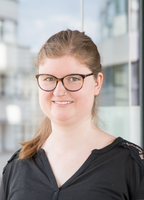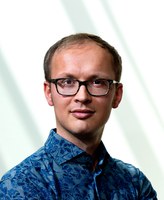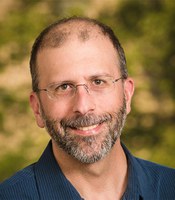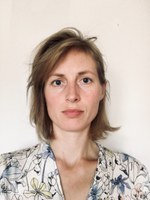Keynote Speakers
Introducing our keynote speakers for the 2021 conference!
Prof. Dr. Mark Dingemanse
https://markdingemanse.net
Mark Dingemanse's work focuses on how language is shaped by and for social interaction. His work is informed by fieldwork in eastern Ghana, comparative research on a wide range of language, and a strong interdisciplinary orientation that includes anthropology, sociology, and cognitive science. He is Associate Professor of Language and Communication, Senior Investigator at the MPI for Psycholinguistics, and PI of the NWO-funded research project 'Elementary Particles of Conversation'.
Talk title: Communicative repair as a window into social coordination
Abstract:
Human language is often hailed as one of the most efficient tools for the exchange of social signals for social coordination. The domain of communicative repair —how we deal with problems in producing and interpreting signals— provides a special window onto these processes. In this talk I show how sequences of communicative repair shed light on how people achieve social action coordination, calibrate mutual understanding and readjust social signals in real-time. I discuss results from a large comparative project on repair across the world's languages, which has revealed some remarkable patterns of universality. I also report on recent work with Raphaela Heesen and colleagues on some of the building blocks of communicative repair across species.
Dr. Sam Ellis
https://samellisq.weebly.com/
I’ve had a taxonomically varied research career, but all my work has been built around understanding the consequences of sociality for the individual. My PhD (at the University of York, UK) focussed on understating how sociality drives nesting decisions in ants. After my PhD I worked on projects at the using social network techniques to understand the fitness consequences of sociality in killer whales and rhesus macaques. Currently I hold a Leverhulme Early Career Fellowship at the University of Exeter. In my current work I use comparative methods to understand the social drivers of the evolution of menopause, using cetaceans as an example.
Talk title: Why do animals invest in their social relationships?
Abstract:
Many animals, including humans, invest substantial amounts of time and effort into forming, maintaining, and rearranging their social relationships. I will present some work in primates and cetaceans that aims to understand why. Why do animals invest in their social relationships? Or to put it another way, what are the consequences, in terms of survival and reproduction, of our social relationships? I will also present some work addressing the mechanisms by which social relationships can affect fitness.
Prof. Dr. Michael Goldstein
https://psychology.cornell.edu/michael-h-goldstein
Michael Goldstein is an Associate Professor of Psychology at Cornell University. He received his Ph.D in developmental psychology and animal behavior from Indiana University. Michael studies the development and evolution of communication and social learning. He takes a comparative approach, investigating vocal communication and social development in human infants and songbirds. His research on the developmental processes by which knowledge of speech and song are acquired has revealed new mechanisms by which the social environment influences the learning of species-typical adaptive skills. By studying social interaction and learning as it occurs in moment-tomoment interactions between infants and social partners, Michael’s research connects our knowledge of social influences on developmental outcomes with specific processes of learning. A major finding from his work is that immature vocal behavior, such as babbling in humans and plastic song in songbirds, has crucial functional significance for learning, but only when studied in a social context. Michael received the David Kucharski Young Investigator Award from the International Society for Developmental Psychobiology and the Distinguished Early Career Contribution Award from the International Society on Infant Studies. His research has been supported by grants from NICHD and NSF.
Talk Title: Emergence of Complex Communication from Simple Interactions:
Lessons from Songbirds and Human Infants
Abstract:
Despite the immense variety of sounds we associate with the animal world, the ability to learn a vocal repertoire is a rare phenomenon, emerging in only a handful of groups, including humans. To gain a better understanding of the development and evolution of vocal learning, we will examine the processes by which birds learn to sing and human infants learn to talk.
A key parallel in the vocal development of birds and babies is the social function of immature vocalizations. The responses of adults to the plastic song of birds and the babbling of babies create social feedback that guides the young towards mature vocalizations. I will present experiments demonstrating how the immature sounds of young birds and babies regulate and are regulated by social interactions. The form and timing of these interactions have strong influences on the development of mature birdsong and language.
For example, how do infants learn to produce patterns of sound that obey the phonotactics of the ambient language? Previous research in my lab has shown that prelinguistic infants use social feedback that is contingent on their babbling to guide their productions towards well-formed speech. To measure changes in vocal production, we presented infants with sounds they were capable of pronouncing but don’t typically say in an ambient English linguistic environment. We used as feedback words from the Nigerian language Yoruba. Yoruban words addressed to Nigerian infants typically have vowel-consonant vowel (VCV) form, and by 10 months these infants’ disyllables tend to be VCV (e.g., “aba”) in contrast to English CVCV (e.g., “baba”). We had mothers respond to their infants’ babbling using Yoruban words to see if infants could extract the VCV syllable pattern. In a between-subjects design, we manipulated the amount of contingency (100% contingent or yoked control) and the variability (100% or 0%) of the VCV exemplars. Infants learned the VCV pattern only when given highly contingent feedback containing high variability in the exemplars. These data are evidence of socially-guided statistical learning in vocal production. Infants extract phonological patterns when their caregivers’ speech is contingent on their babbling.
The difficulty of measuring rapid social interchanges organized by immature vocalizing has led many to overlook their importance and assume that young songbirds and human infants learn by passive exposure followed by motor practice. My data indicate that vocal learning is an active, socially-embedded process. By creating feedback that is both inherently informative and socially relevant, structured social interaction boosts the salience of acoustic patterns in the input and facilitates learning of speech and song.
Dr. Sofie Valk
https://www.fz-juelich.de/SharedDocs/Personen/INM/INM-7/EN/valk_s.html
Sofie Valk majored in Artificial Intelligence and Social/Political Philosophy at the University of Amsterdam, and finished a MSc in Cognitive in Brain Sciences at the same university. Following she pursued a PhD in Social Neuroscience at the Max Planck Institute of Human Cognitive and Brain Sciences in Leipzig, Germany, where she investigated the structural basis of the social brain, and found that cortical thickness changes as a function of social mental training. She was awarded the Otto Hahn medal and award for this work. Following she was a postdoc with Prof Simon Eickhoff in Forschungszentrum Juelich/Heinrich Heine University, Duesseldorf, Germany, where she worked in imaging genetics. Here she found that multiple, heritable, axes organise the human and macaque cortex. Currently she is a group leader of the Cognitive Neurogenetics group at the Max Planck Institute of Human Cognitive and Brain Sciences and at the INM-7 in Forschungszentrum (Research Centre) Juelich. Her hobbies include running and building duplo trains with her kids.
Talk Title: The organisation of the social brain - heritability, phylogeny, and plasticity
Abstract:
Humans have unique social skills that enhance cooperation and survival, such as Theory of Mind and empathy. Contemporary views on human cognition suggest that the human ability to experience abstract thought relates to the structural and functional organisation of the human cortex. In my talk I will detail various studies on the interrelationship between brain organisation and abstract, social, cognition. First I will speak about the genetic and phylogenetic basis of human structural brain organisation. Following I will discuss its link to function at rest, and to what extend the association between structure and function may support abstract cognitive processing, such as social cognition, in humans. Last I will discuss the effects of social mental training on brain structure and function, providing a link how the social environment may interact with the human brain.
Workshop by Dr. Christof Neumann
I am a behavioural biologist with a background in social behaviour and communication and so far, I worked mostly with primates. My interests in this regard circle around the question of why and how individuals in groups form the relationships they form. I am also very interested in the nuts and bolts of how we use statistics to analyse social behaviour, especially with respect to improving our quantification of behaviour on the individual, dyadic and group level. More recently, I became interested in formal comparative methods where we try to model aspects of social behaviour across species while accounting for the phylogenetic relationships among them.
Workshop title: Reworking your workflow: combining data analysis and reporting with dynamic documents
Abstract:
In this short workshop I will introduce some ideas and tools to produce dynamic documents. The idea behind this approach in a scientific context is that we combine two key parts of the scientific process in a unified framework: data analysis and the presentation of the results, be that a thesis, a journal article or a conference presentation. During the workshop we will discuss the pros and cons of using such a workflow to write up your analyses, as well as some further extensions. We will also work through a simple example using R markdown, a widely used and open-source implementation of this approach.
Please note: Before the conference the organisers will send around a brief questionnaire and a set of instructions on how to prep your computer in order to follow the practical example.
Workshop by Mariella Paul




